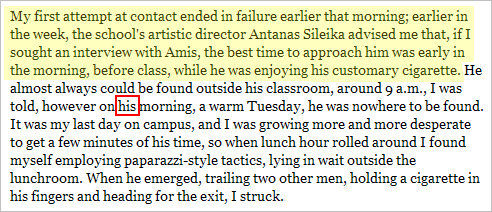Let me begin this small rant by stating that I’ve been a hardcore fan of CBC Radio since before most of you were born. It’s not just the lack of advertising (which can make listening to commercial radio — especially in the morning — downright torturous) that makes me a fan. It’s the high standard of journalistic integrity that I’ve come to know and respect over the years.
Some of that has been in decline recently. Specifically, I’m talking about the quality of news reporting from the local (Montreal) station. Most of it remains quite good, but on a pretty regular basis I find myself shaking the radio and yelling “stop saying that!”
I should have taken notes, because there’s nothing worse than a rant lacking in specifics. I do, however, have one example; something I’ve been hearing on the local CBC Radio news all day today.
As you may know, the price of gas is going up tomorrow due to the imposition of a new tax. The revenue from the new tax will be directed toward public transit costs. That sounds like a great idea to me. The amount of the new tax is 1.5 cents per litre of gas.
It drives me crazy that the CBC Radio reports I’ve been hearing all day start thusly:
Drivers in the Montreal area will want to fill up their tanks before tomorrow…
Grrr! There are two reasons why this news story should not begin like that:
Editorializing. News reports should not tell people what they should do or should want to do. They can say that so-and-s0 says you should do something, but the news reader (and by extension, the writers, editors, and the entire corporation) should not be telling people what to do. That’s basic journalism 101. You could argue that they’re just trying to be “light” and “accessible” or whatever, but that’s what the crappy news departments of commercial radio stations do. It’s not what CBC Radio, with it’s high standards, is supposed to do.
It’s stupid! Do the math; the average small- to mid-size car has a 40 litre gas tank. The price of gas is going up by one-and-a-half cents per litre. Thus, your exercise in racing off to the pumps to beat the increase will save you about sixty cents. Sixty cents! And that’s only if your tank is empty. Even if you have a huge car with a big tank, you’re still only going to save a dollar or two.
Rushing to fill your tank before a 1.5 cent price increase is a dumb idea, and an even dumber way to lead a news story. Any decent news editor would snip that opening line right off the bat, for both of those reasons.
So that’s today’s rant. I wish this was an isolated event, but as I said, I’m hearing this kind of bad news reporting fairly often these days.
Where is the editor? This is the kind of thing that is supposed to separate “real” journalism from Joe Blogger and Jane Podcaster. Professionalism! How about we add another half-cent to the price of gas and funnel it into improving the news department at CBC Radio Montreal!




